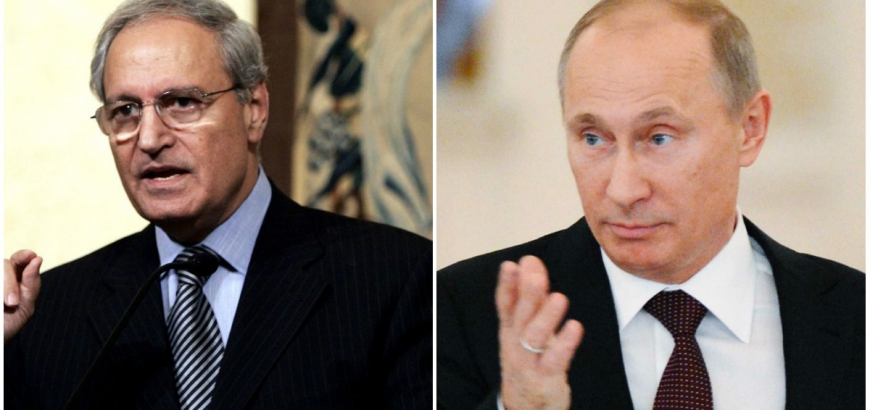There has been much talk recently on the expected return of the former Syrian vice president, Farouk al-Sharaa, and his key role in the coming stage of the political scene in Syria following years of rumors around his confinement to house arrest by the Assad regime.
Information about Sharaa’s situation has remained scarce in light of the regime’s media blackout about him. However, researcher Abdel-Majid Barakat, who was former director of information for the state crisis management unit from which he defected in 2011, told Alsouria Net that Sharaa had been under house arrest for years, but added he had been released following Russian intervention in the matter.
Barakat, who in 2012 leaked a huge number of documents from inside Syria’s security departments, said that the regime in 2011 was angered with Sharaa after he presented a program for reconciliation in Daraa. According him, the program included President Bashar al-Assad traveling to Daraa to meet with a number of families to provide them with compensation, while also holding to account Atef Najib, the former head of the political security branch in in the southern province. Daraa had erupted in protests after the security services issued an order to arrest children.
He added that following this, the regime put Sharaa under house arrest in the area of Yaafour in the Damascus countryside and allocated a number of Republican Guard members to monitor him. Sharaa was forbidden from travel and accessing any form of media.
Barakat also told Alsouria Net that at that time a European official wanted to meet Sharaa but the regime prevented him from doing so. According to the researcher, Sharaa remained under house arrest until Russia intervened in 2016 and called on Assad to free him.
Relating the details of this Russian intervention in Sharaa’s case, Barakat said that the Russians had informed Assad that this man was a “red line.”
“They told him that you are responsible for Farouk al-Sharaa’s security and no one may impose [restrictions on] his movements, and if anything happens to him or his life is subjected to any danger, the responsibility falls with you,” he added.
Barakat said that about a year ago Sharaa had enjoyed a sort of freedom of movement and transport, and said that he had meet with Russian officials only, adding that Assad was not able to reject the Russian request to meet Sharaa, but that he had not met other officials.
Sharaa’s appearance in 2016 after a long absence affirms what Barakat said, when he appeared in a photo published by the Tahrir Souri webpage, said to be at a funeral. This image was the first of him to appear in three years of absence.
Responding to a question from Alsouria Net about whether Russia intended for Sharaa to play a role in the transitional stage in Syria, Barakat said: “Yes, probably.” He also did not rule out that Sharaa would be among those who attend the conference which Russia is working to hold in the city of Sochi, bringing together representatives of the Assad regime and its opposition to discuss the Syrian issue.
The Russian newspaper Novosti on Dec. 8, quoted three sources as saying that “Sharaa will attend the Sochi conference, which is expected to be held in February 2018.”
It added that “three independent sources, two of whom are close to the conference organizers, said that Sharaa will open the national dialogue conference in Sochi and that this may lead to him chairing the meeting.”
In this context, the Kuwaiti newspaper Al-Rai quoted high-level American sources as confirming that Russian officials had informed their American counterparts that Moscow, Tehran and Assad had agreed on Sharaa taking over administration of the “transitional stage” in Syria.
The Russian officials, according to the newspaper, said that Sharaa had met with acceptance among the regime and the opposition, especially given that he is a “civilian figure and was not involved in any of the fighting which erupted in the country since 2011.”
This article was translated and edited by The Syrian Observer. Responsibility for the information and views set out in this article lies entirely with the author.


